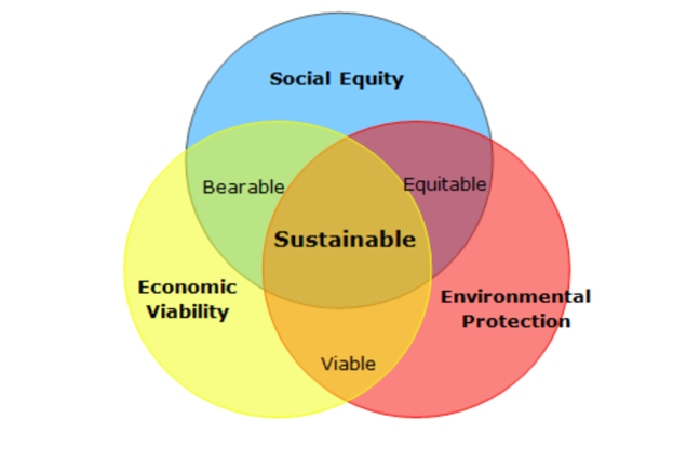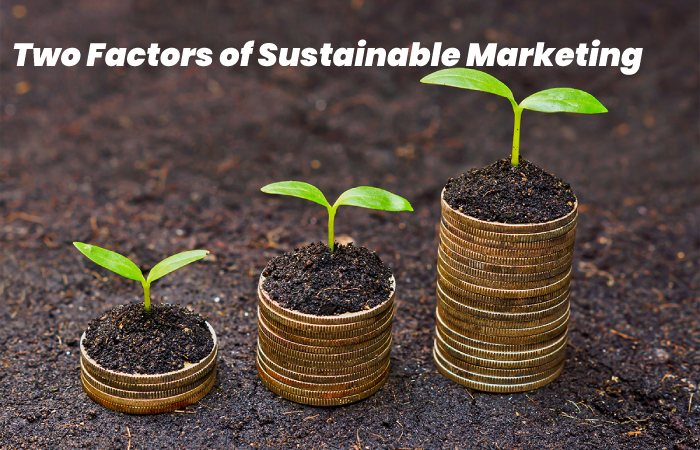Table of Contents
What is Sustainable Marketing?
Sustainable marketing, as defined by Fuller (Sustainable Marketing, Managerial-Ecological Issues), is: “The process of planning, implementing, and controlling the development, pricing, promotion, and distribution of products to satisfy the following three criteria: satisfaction of the client’s needs, achievement of the company’s objectives and compatibility of the process with the ecosystem.”
Principles of Sustainable Marketing

Sustainable marketing has five basic principles:
Consumer-oriented marketing: The company or brand sees its marketing strategy from the consumer’s point of view. Inbound marketing will be your ally.
Customer Value Marketing: This involves continually improving the value we deliver to customers. As the company creates worth for the customer, the customer, in turn, creates worth for the company. This translates into something we could call sustainable emotional marketing.
Innovative Marketing: Ensures that we never stop finding better ways to develop products, services, and better ways to market. If innovation is ignored, customers will be lost.
Marketing with a sense of mission: is the principle that guides a company to define a broad mission that speaks to society and the planet instead of just a product. Adopting an overall mission gives us a clear long-term direction.
Also Read: How to Build an Authentication Flow with React Navigation v5?
Objectives of S Marketing
Sustainable marketing has two fundamental objectives:
1. Meet the financial objectives of the organization.
2. Incorporate sustainability goals and practices.
When we implement a sustainable marketing strategy correctly, it can lead to results such as:
- Less impact on the environment.
- More excellent value for the community, suppliers, and the company.
- Consideration of the effect on society.
- Anticipation of changes in the industry and society and how those changes will affect us in the future.
- Customer retention and increased employee happiness.
- In short, we improve the company while we improve the world.
Why is Sustainable Marketing Important?
Marketing and sustainability should not be seen as enemies. They are not Batman and the Joker; they are Batman and Robin because they help each other. Marketing can aid sustainable development, while ethics helps to do good marketing.
This would be enough to make it clear why sustainable marketing is essential but seen in more detail:
People (the social balance): A company is nothing more than a form of human collaboration, so companies must take care of their most precious asset, people.
Planet (the environmental balance sheet): A company’s environmental impact is potentially the most complicated, and we need to ensure that we are doing more than just reducing our impact.
Profit (the economic balance): Beyond what we see at the end of the year-end accounts, a company that bets on the triple bottom line will try to evaluate the economic value that it has contributed to the local and global economy through its work. . And it is clear that we need profits to be able to continue doing an excellent job in the company.
How to Adopt S Marketing
Sustainable marketing must act directly on the production and elaboration of the product. When taking action in this direction, it is necessary to consider environmental protection, employee safety, and social responsibility. The manufacturing process must be efficient, with waste reuse or pollution control and a recycling-oriented vision. However, a change in practices implies challenges. One of them is the financial issue. Adopting green practices has a high implementation cost. You also have to face customers’ scepticism, who may see this “sustainable wink” as a tactic to increase sales and not as a fundamental change in behaviour.
Also Read: How to Build A NFT Fashion Marketplace?
Two Factors of Sustainable Marketing

According to the Australian agency Sustainable Marketing, to adopt sustainable marketing actions, five factors must be taken into account:
Include sustainable practices in your business strategy:
You must set measurable goals; lists the activities necessary to achieve those goals; become an influential person within the company responsible for them. Examples of sustainable practices include: optimizing business performance, creating solid relationships with customers, other businesses, employees, and the community; balancing the budget to ensure fiscal sustainability; helping your business community prosper; reduce carbon footprint.
Conduct marketing activities that create sustainable growth:
Businesses have limited financial, human, and capital resources, so the advice is to focus on the most effective marketing activities for your business. Collaborate with consumers to develop more targeted products and bring them to market faster.
As a business owner, you can have a more significant impact by influencing your team and other businesses to have sustainable business practices. Help others understand the difference they can make in the fight for a more sustainable world.
Minimize the use of resources in your daily operations, especially by reducing the consumption of greenhouse gases. For example, print your documents with ecologically friendly inks and on recycled paper; exchange mail for online communication; create online catalogs instead of using a form; uses virtual communication such as Skype, video conference and Hangouts, etc.
Also Read: How Many Tablespoons in a Shot?
What is Sustainable Marketing looking for?
The objective of the marketing part is to maintain the organization’s competitive advantage by satisfying the needs of consumers. The key here is to understand that sustainability is no longer an option but a requirement without which lasting competitive advantage is not obtained.
Suppose sustainable marketing is concerned with being able to serve not only present customers but also future ones. In that case, it seeks to develop products, services, brands, and companies that make a significant difference to your present and prospective consumers, which implies taking into account both social aspects, profitability, and the carrying capacity of the planet.
Conclusion
Sustainable marketing aims to promote a company’s sustainable and environmentally friendly products or services. As environmental problems increase and society becomes more socially responsible, consumers look for companies that reflect their values.
It is important to note that sustainability is not just about respecting the environment. It also includes economic and social practices. Therefore, it is not the same as green or environmental marketing.
Also Read: Internet Marketing Business BizLeads Virtual Summit-2022


